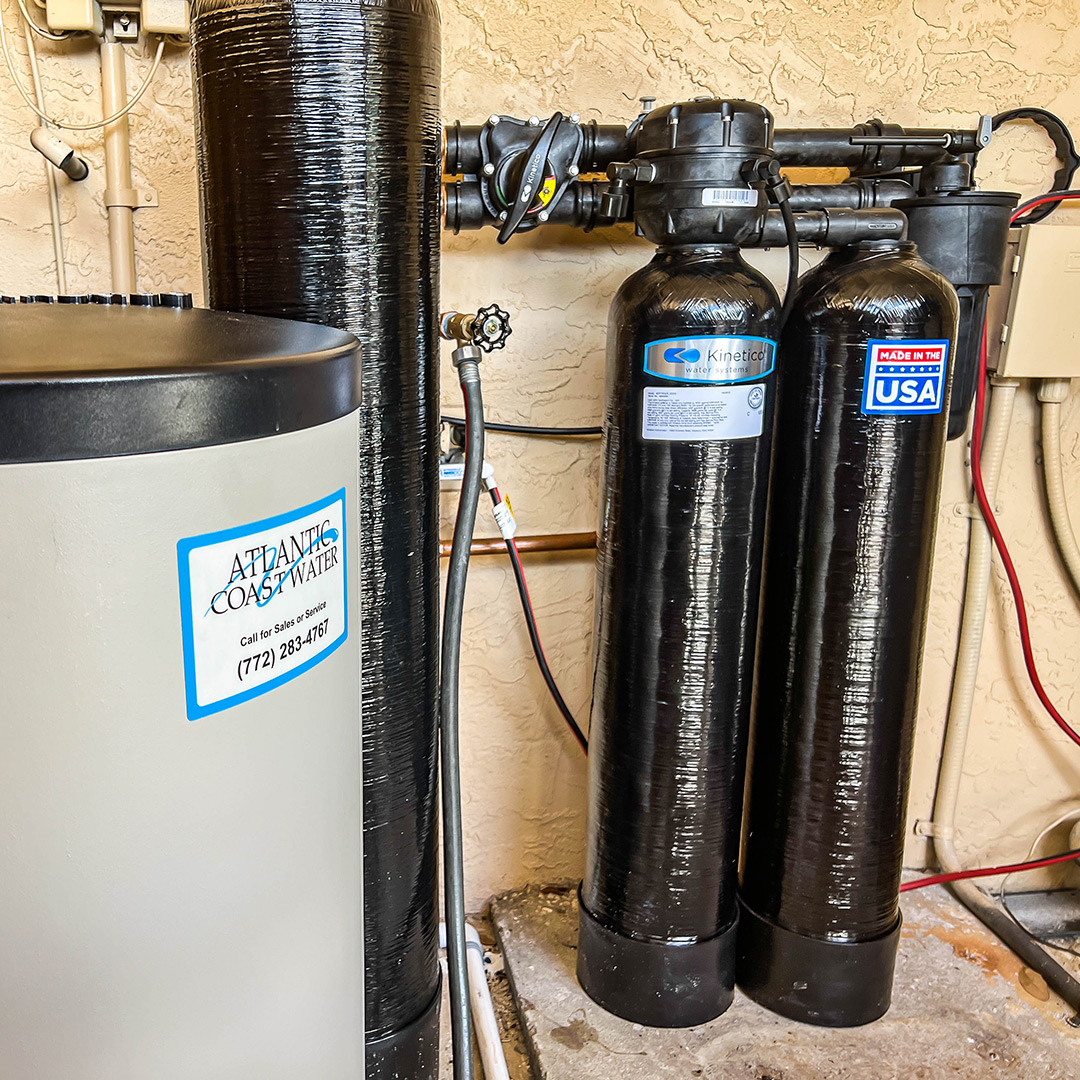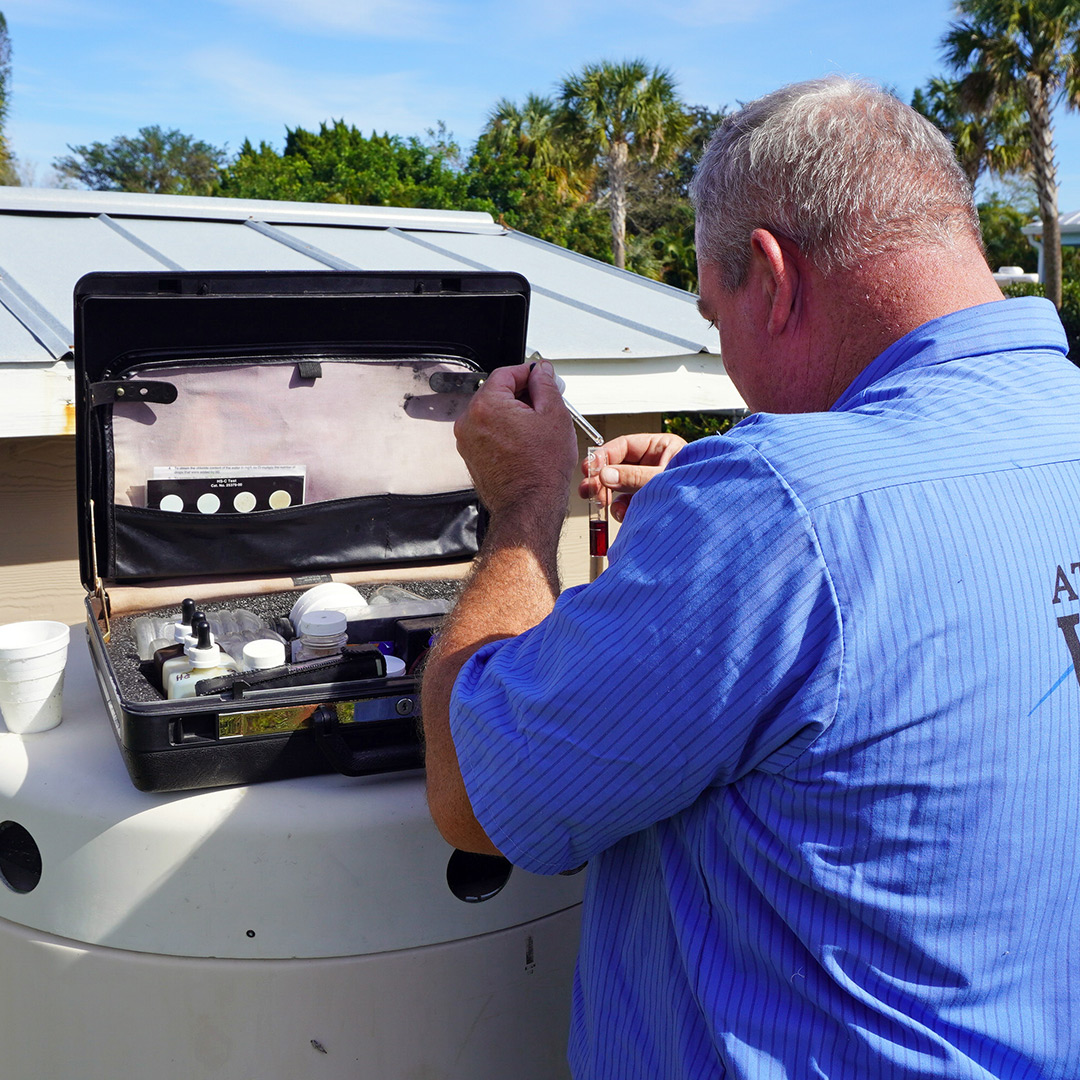What to Know About Water Neutralization
You may have heard the term “water neutralization” but weren’t sure exactly what it meant. You’re probably more familiar with the term “pH balance” and the words “acidity” and “alkalinity.” In a nutshell, water neutralization describes the pH balance, or level of acidity vs. alkalinity, in water.
 Atlantic Coast Water Clinic of South Florida would like to share some interesting facts about pH balance in the water we drink, bathe in, and cook with.
Atlantic Coast Water Clinic of South Florida would like to share some interesting facts about pH balance in the water we drink, bathe in, and cook with.
Scientifically speaking…
The pH level in water is measured on a scale of 0 to 14, with 0 being highly acidic and 14 being highly alkaline. For water to be optimally healthy for us and ideal to use around the house, it should measure right around 7 on this scale.
When the balance shifts downward, it reflects a larger concentration of “free hydrogen atoms” in the water. Water with more free hydroxyl ions moves up the scale into the area of the perfect 7 and beyond. That’s about all the science and terminology most people need to know. What everybody needs to know is how acidic water that ranks below 7 can affect them.
Hard water
“Hard water” is the term we use for water that’s below the ideal 7 on the acid/alkaline scale. You may not know all the science, but you definitely know what hard water is.
Hard water characteristics include:
- A slightly harsh, chemical taste when consumed
- Spots all over dishes and cookware
- Dry, itchy skin
- Build-up of soap scum and limescale deposits around faucets and in showers
- Low sudsing from soap and detergent
- Buildup inside plumbing pipes that can lead to lowered water pressure
These and other signs are common with hard water, which can be caused by excess carbon dioxide in the atmosphere, general pollution, runoff from mining operations, and the decomposition of plant and vegetable life.
pH levels in different types of water
Acid rain results in water with around a 5 on the pH scale. Trendy “alkaline” bottled water can score up to 9 and even higher. Municipal water usually stays in the neighborhood of 7, but can go lower into acidity and still be within governmental safety guidelines.
While municipal water from your city or county is deemed “safe” when below the ideal pH of 7, it can cause some or all of the problems listed above. So it’s “safe,” but not necessarily ideal.
Testing your water
If you have hard water, you probably don’t need a test to find this out. But you may not be sure, so you can perform a water-neutrality test at home. You can also have your water treatment company do the test to make sure it’s done right and that you understand all the findings.
If you find that your water is on the hard side – and especially if you’re seeing the common signs of hard water – a water neutralization system can fix the issue immediately.

Along with neutralizing your water, you can also look into a water purifier that will remove nearly all of the potentially harmful contaminants that are allowed to exist in municipal water but that you may not want in your body or home. The water test will reveal these contaminants.
Get the very best water
Atlantic Coast Water Clinic can help you get your water into shape with top-line water neutralizing systems, water softeners, water purifiers and other specialized components. We care about your water, and we want you to have the very best.
If you live in Port St. Lucie, Fort Pierce, Hobe Sound or neighboring South Florida communities, call us today at (772) 283-4767. You can also get in touch through our contact form.


 772-283-4767
772-283-4767